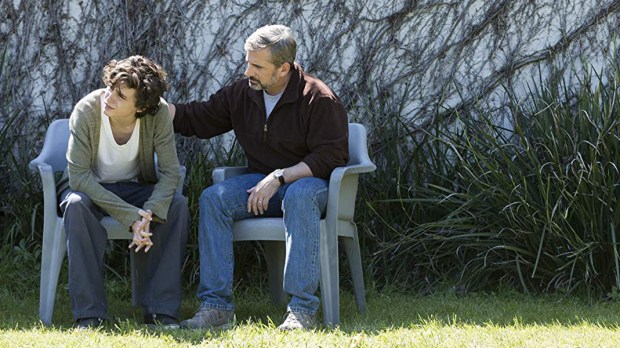Even when I was a kid it always bothered me that television fathers were portrayed as bumbling, lazy, and borderline incompetent. Sure, it was funny, but it didn’t match my experience. My dad was anything but incompetent, and a far cry from the sitcom fathers who sat on the couch watching football while their wives cooked and cleaned. In fact, my dad always did the dishes and made my mom go sit down after dinner. He also worked two jobs, coached our sports teams, and came to every single game we played (or in my case, every play I was cast in).
As I grew up, I realized that some fathers were closer to the sitcom stereotype, but not many. The vast majority of dads I met were a lot more like mine — warm, loving, involved parents, much more similar to sitcom moms than sitcom dads. By the time I was a parent myself, the careless trope of “TV dad” was no longer funny — it was obnoxious and offensive.
I’m not the only one to notice this. A recent article at ThriveGlobal praising the newly released movie Beautiful Boy pointed out that while the movie is a remarkable multilayered depiction of addiction, what’s even more remarkable is the way it depicts fatherhood:
Beautiful Boy doesn’t traffic in any of these destructive, tired old tropes. Instead it presents fatherhood as parenthood, nearly stripped of gender altogether, which makes it particularly powerful … It is a devastating portrait of the ravages of addiction and an incredibly moving portrayal of fatherhood. Historically, says Erica Scharrer, Ph.D., a professor in the department of communication at the University of Massachusetts Amherst, fathers are presented, especially on television “as bumbling, ineffectual and immature, almost like a child rather than a parental figure,” she says, citing her famous 2010 study, “Wise to Foolish: The Portrayal of the Sitcom Father, 1950s to 1990s,” which documented how fathers went from being distant but kindly authority figures who offered their children sound advice (e.g., the Father Knows Best era) to buffoons who are frequently the butt of family jokes for their ineptitude (Home Improvement,Family Guy). Scharrer points out that this change is concurrent with women’s increased economic power and earning capacity outside the home.
I have no idea why television producers decided that turning fathers into caricatures would appeal to the emerging market of working mothers, but it almost certainly did not. In fact, my female friends are universally disgusted by the disparaging way fathers are presented on TV, and most of us long ago stopped watching the networks responsible.
It’s not just insulting to fathers, it also damages children’s perception of the role of men and women in parenthood by reinforcing false ideas. Women aren’t necessarily naturally better with babies — in fact, my husband was 100 percent better than I was with our first baby. For several weeks, I was too terrified by how fragile she seemed to effectively change her diaper or her clothes. I may have been her food source, but her dad was her primary caregiver in those early days.
But what if he hadn’t been willing to take on that role because of internalized stereotypes? To be honest, I think we all would have been in a lot of trouble if he hadn’t been willing to ditch the stereotypes and swaddle the baby. I was already in the grips of postpartum depression, and I don’t know that I could have made it through those weeks without his help.
Ultimately, the real trouble with stereotypes is that they hurt everyone. By portraying fathers as incompetent, the media has to go the other direction with mothers — portraying them as super-capable multitaskers who don’t need help from anyone, especially their husbands. Spoiler alert: mothers are human, and we need help too. A family functions best when the mother and father work together as partners.
Luckily, the media seems to be getting the message. There’s been a slow but steady increase in positive portrayals of fatherhood in the past few years, and Beautiful Boy is one more example of a movie showing fatherhood for what it is — real parenting, plain and simple.
Read more:
WATCH: Dad’s Trick for Getting His Baby to Sleep Will Make Your Day

